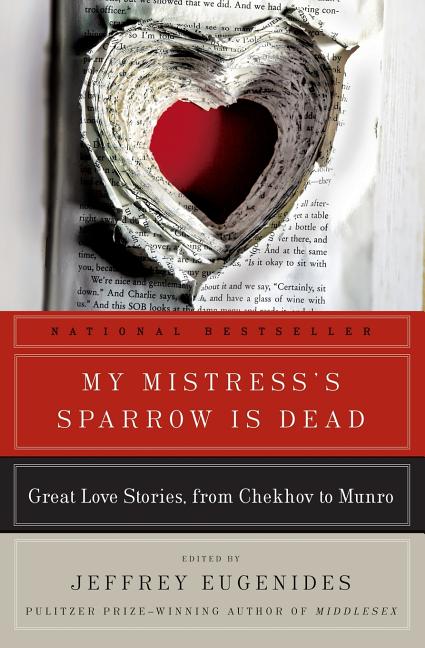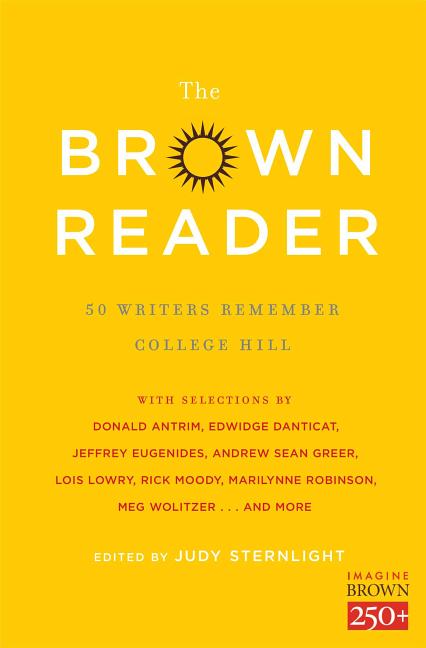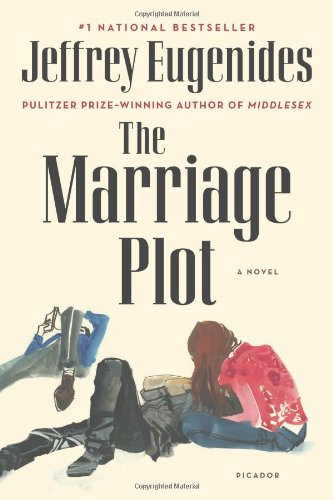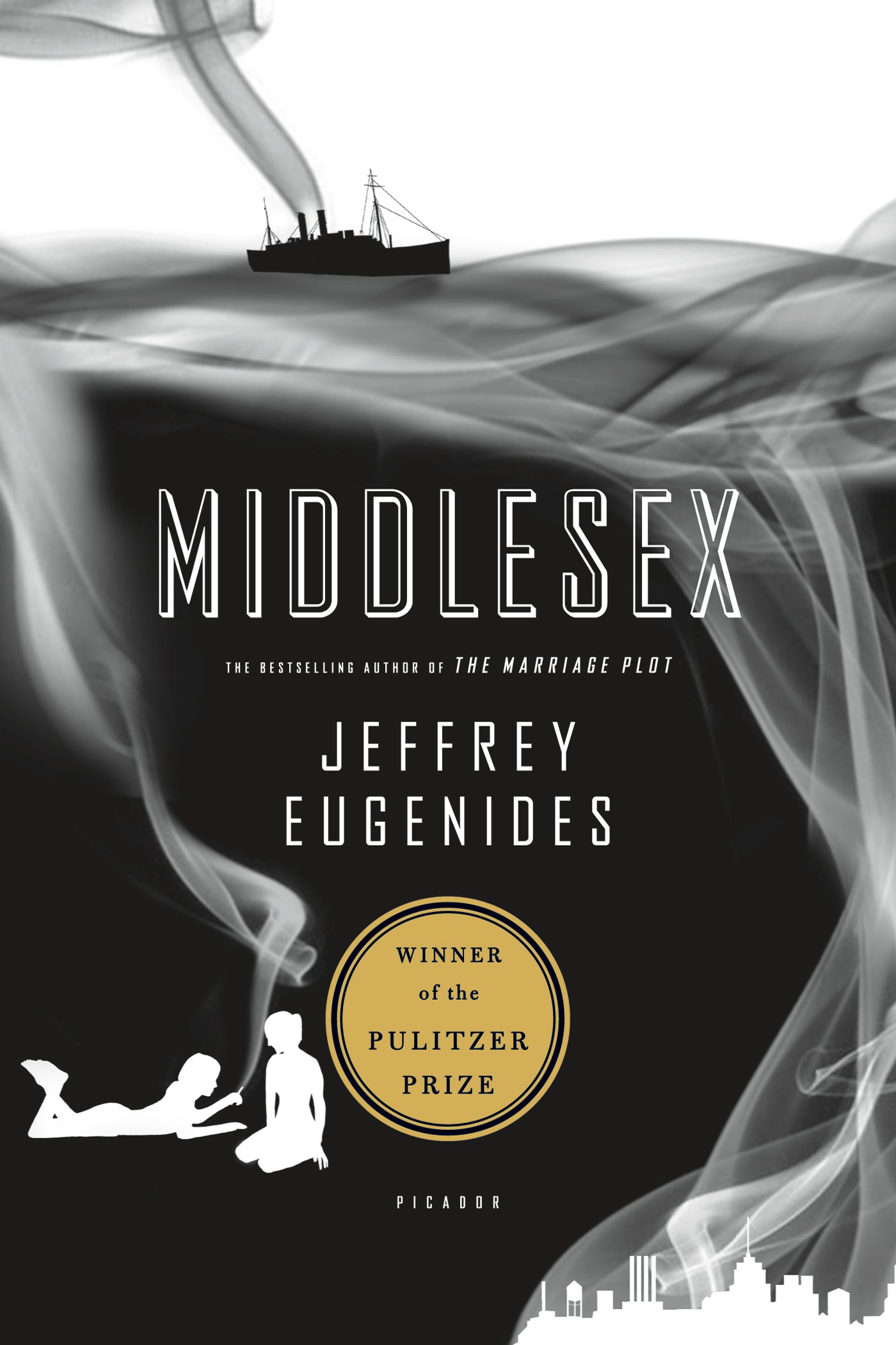Jeffrey Eugenides’s bestselling novels have shown that he is an astute observer of the crises of adolescence, sexual identity, self-discovery, family love, and what it means to be an American in our times. The stories in Fresh Complaint continue that tradition. Ranging from the reproductive antics of “Baster” to the wry, moving account of a young traveler’s search for enlightenment in “Air Mail” (selected by Annie Proulx for The Best American Short Stories 1997), this collection presents characters in the midst of personal and national crises. We meet a failed poet who, envious of other people’s wealth during the real-estate bubble, becomes an embezzler; a clavichordist whose dreams of art collapse under the obligations of marriage and fatherhood; and, in “Bronze,” a sexually confused college freshman whose encounter with a stranger on a train leads to a revelation about his past and his future. Narratively compelling, beautifully written, and packed with a density of ideas that belie their fluid grace, Fresh Complaint proves Eugenides to be a master of the short form as well as the long.
Jeffrey Eugenides Selected Works
For the last twenty years, James Casebere has constructed increasingly complex small-scale architectural models that are carefully built and then subtly lit and photographed in the studio. These table-sized models are made of simple materials, pared down to essential forms, empty of both extraneous detail and action. Casebere's disconcerting ''sites'' recall prisons, monasteries, tunnels, factories, and other archetypal spaces. Casebere has gained increasing international acclaim in recent years as the leading proponent of what has become known as ''constructed photography.''
This is the first publication to comprehensively survey Casebere's career in its entirety, and provides an important contextual and visual framework in which to posit his soaring international reputation. His oeuvre can be seen in the full scope of its development, from his early preoccupation with the genre of the Western and the suburban home, to his concern with institutional buildings, to his recent investigations into the relationships between social control and social structures.
Essay by Jeffrey Eugenides

"When it comes to love, there are a million theories to explain it. But when it comes to love stories, things are simpler. A love story can never be about full possession. Love stories depend on disappointment, on unequal births and feuding families, on matrimonial boredom and at least one cold heart. Love stories, nearly without exception, give love a bad name . . . .
It is perhaps only in reading a love story (or in writing one) that we can simultaneously partake of the ecstasy and agony of being in love without paying a crippling emotional price. I offer this book, then, as a cure for lovesickness and an antidote to adultery. Read these love stories in the safety of your single bed. Let everybody else suffer."—Jeffrey Eugenides, from the introduction to My Mistress's Sparrow Is Dead
All proceeds from My Mistress's Sparrow is Dead will go directly to fund the free youth writing programs offered by 826 Chicago. 826 Chicago is part of the network of seven writing centers across the United States affiliated with 826 National, a non-profit organization dedicated to supporting students ages 6 to 18 with their creative and expository writing skills, and to helping teachers inspire their students to write.

In celebration of Brown University’s 250th anniversary, fifty remarkable, prizewinning writers and artists who went to Brown provide unique stories—many published for the first time—about their adventures on College Hill. Funny, poignant, subversive, and nostalgic, the essays, comics, and poems in this collection paint a vivid picture of college life, from the 1950s to the present, at one of America’s most interesting universities.
Contributors:
Donald Antrim, Robert Arellano, M. Charles Bakst, Amy DuBois Barnett, Lisa Birnbach, Kate Bornstein, Sarah Shun-lien Bynum, Mary Caponegro, Susan Cheever, Brian Christian, Pamela Constable, Nicole Cooley, Dana Cowin, Spencer R. Crew, Edwidge Danticat, Dilip D’Souza, David Ebershoff, Jeffrey Eugenides, Richard Foreman, Amity Gaige, Robin Green, Andrew Sean Greer, Christina Haag, Joan Hilty, A.J. Jacobs, Sean Kelly, David Klinghoffer, Jincy Willett Kornhauser, Marie Myung-Ok Lee, David Levithan, Mara Liasson, Lois Lowry, Ira C. Magaziner, Madeline Miller, Christine Montross, Rick Moody, Jonathan Mooney, Rowan Ricardo Phillips, Dawn Raffel, Bill Reynolds, Marilynne Robinson, Sarah Ruhl, Ariel Sabar, Joanna Scott, Jeff Shesol, David Shields, Krista Tippett, Alfred Uhry, Afaa Michael Weaver, and Meg Wolitzer

It’s the early 1980s—the country is in a deep recession, and life after college is harder than ever. In the cafés on College Hill, the wised-up kids are inhaling Derrida and listening to Talking Heads. But Madeleine Hanna, dutiful English major, is writing her senior thesis on Jane Austen and George Eliot, purveyors of the marriage plot that lies at the heart of the greatest English novels. As Madeleine tries to understand why “it became laughable to read writers like Cheever and Updike, who wrote about the suburbia Madeleine and most of her friends had grown up in, in favor of reading the Marquis de Sade, who wrote about deflowering virgins in eighteenth-century France,” real life, in the form of two very different guys, intervenes. Leonard Bankhead—charismatic loner, college Darwinist, and lost Portland boy—suddenly turns up in a semiotics seminar, and soon Madeleine finds herself in a highly charged erotic and intellectual relationship with him. At the same time, her old “friend” Mitchell Grammaticus—who’s been reading Christian mysticism and generally acting strange—resurfaces, obsessed with the idea that Madeleine is destined to be his mate. Over the next year, as the members of the triangle in this amazing, spellbinding novel graduate from college and enter the real world, events force them to reevaluate everything they learned in school. Leonard and Madeleine move to a biology Laboratory on Cape Cod, but can’t escape the secret responsible for Leonard’s seemingly inexhaustible energy and plunging moods. And Mitchell, traveling around the world to get Madeleine out of his mind, finds himself face-to-face with ultimate questions about the meaning of life, the existence of God, and the true nature of love.
Are the great love stories of the nineteenth century dead? Or can there be a new story, written for today and alive to the realities of feminism, sexual freedom, prenups, and divorce? With devastating wit and an abiding understanding of and affection for his characters, Jeffrey Eugenides revives the motivating energies of the Novel, while creating a story so contemporary and fresh that it reads like the intimate journal of our own lives.

This Pulitzer-prize winning novel is the astonishing tale of a gene passed down through three generations of a Greek-American family, finally flowering in the body of a teenage girl.
In the spring of 1974, Calliope Stephanides, a student at a girls' school in Grosse Pointe, finds herself drawn to a chain-smoking, strawberry blonde classmate with a gift for acting. The passion that furtively develops between them—along with Callie's failure to develop—leads Callie to suspect that she is not like other girls. In fact, she is not really a girl at all. The explanation for this shocking state of affairs takes us out of suburbia—back before the Detroit race riots of 1967, before the rise of the Motor City and Prohibition, to 1922, when the Turks sacked Smyrna and Callie's grandparents fled for their lives. Back to a tiny village in Asia Minor where two lovers, and one rare genetic mutation, set in motion the metamorphosis that will turn Callie into a being both mythical and perfectly real: a hermaphrodite. Spanning eight decades—and one unusually awkward adolescence—Jeffrey Eugenides's long-awaited second novel is a grand, utterly original fable of crossed bloodlines, the intricacies of gender, and the deep, untidy promptings of desire. It marks the fulfillment of a huge talent, named one of America's best young novelists by both Granta and The New Yorker.

First published in 1993, The Virgin Suicides announced the arrival of a major new American novelist. In a quiet suburb of Detroit, the five Lisbon sisters—beautiful, eccentric, and obsessively watched by the neighborhood boys—commit suicide one by one over the course of a single year. As the boys observe them from afar, transfixed, they piece together the mystery of the family's fatal melancholy, in this hypnotic and unforgettable novel of adolescent love, disquiet, and death. Jeffrey Eugenides evokes the emotions of youth with haunting sensitivity and dark humor and creates a coming-of-age story unlike any of our time. Adapted into a critically acclaimed film by Sofia Coppola, The Virgin Suicides is a modern classic, a lyrical and timeless tale of sex and suicide that transforms and mythologizes suburban middle-American life.
